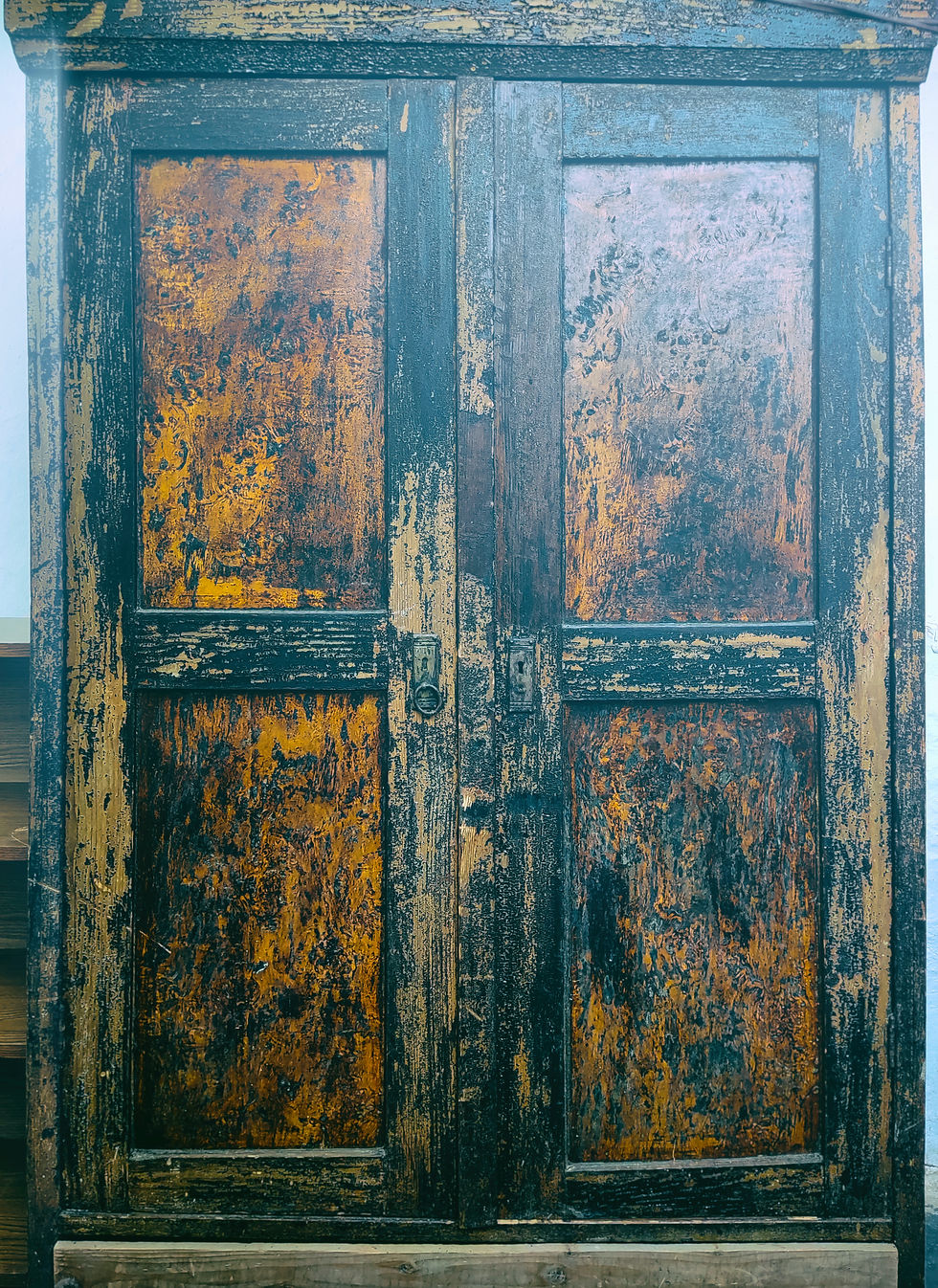The Soul Cupboard
- Equinox Psychotherapies

- Oct 1, 2022
- 3 min read
When we can't process painful experiences and traumas we push them away. But they have to go somewhere.

Many years ago, when I first started my own personal therapy, before I became a therapist, in sessions I'd have a very strong sensation of a feeling in my stomach. I'd point to my belly button area, and say things like, "It just feels heavy here" or "I just feel like there's something that's stored here that I can't get rid off".
My therapist would notice and gently reflect back to me that when I was talking or expressing some kind of grief, or sadness, I'd clutch my stomach, or move my hands over it, as if I were protecting it.
Over time, I started to call it my "Soul Cupboard"- I don't remember exactly when, but I do know that it immediately felt right as a description.
Now I use it as an analogy with my clients, and it can be a very helpful way of giving a visual marker to what can otherwise feel like a huge, tangled mess of emotions, traumas and experiences.
We know that trauma is felt and experienced in our bodies. Body Psychotherapy, and therapeutic approaches like Somatic Experiencing, and Creative Psychotherapies such as Dramatherapy, focus on healing trauma from a body-and-mind orientated approach. We know that depression, anxiety, grief and unresolved trauma isn't just "all in the mind" - they come with significant bodily symptoms too. A racing heart, panic attacks, IBS or insomnia are all common physical symptoms which manifest when we feel anxious, stressed, depressed or are holding unresolved trauma.
Processing this kind of stuff is huge - and it hurts. Generally, humans don't like to feel emotional pain, or even be too aware that they are hurting - we feel vulnerable, and ashamed, so we hide it away. This is where the Soul Cupboard comes in.
Most of us have that one cupboard (or drawer) in the kitchen, which is where all the "I don't know where else to put it" stuff goes. It's usually takeaway menus, extra balloons or candles that don't get used at a birthday party, batteries, Tupperware lids or plastic cups that you didn't want to waste. It's the go-to place to put anything you don't have a specific spot for - and it rapidly piles up until you can't find anything in it.
It's exactly the same for our painful emotions, experiences and traumas. We're just not very good at processing trauma or pain immediately after it happens. We have all sorts of sophisticated defense mechanisms that leap into place to stop us thinking and feeling pain too deeply, and they probably worked brilliantly at first. Defense mechanisms serve us well - until they don't. Alcohol, drugs, smoking, binge eating, obsessive exercise, feeling that we are irreplaceable at work - these can all be ways of stopping us thinking or feeling too deeply. But, crucially, these don't take the trauma away, or help us process it - and it has to go somewhere.
So we shove these feelings down into our Soul Cupboard, and shut the door. Over time though, our Soul Cupboards may start to get full, and things start to spill out. If it's too terrifying to process things immediately after the event, just think how it feels when you realise the door on your Soul Cupboard just keeps being pushed open, or has faulty hinges.
Trauma informed therapists can help you as you start to open your Soul Cupboard. We can help you take things out, and gently begin to sort through everything. Once you know it's there, you can start the process of making sure you never overfill it again.


Comments